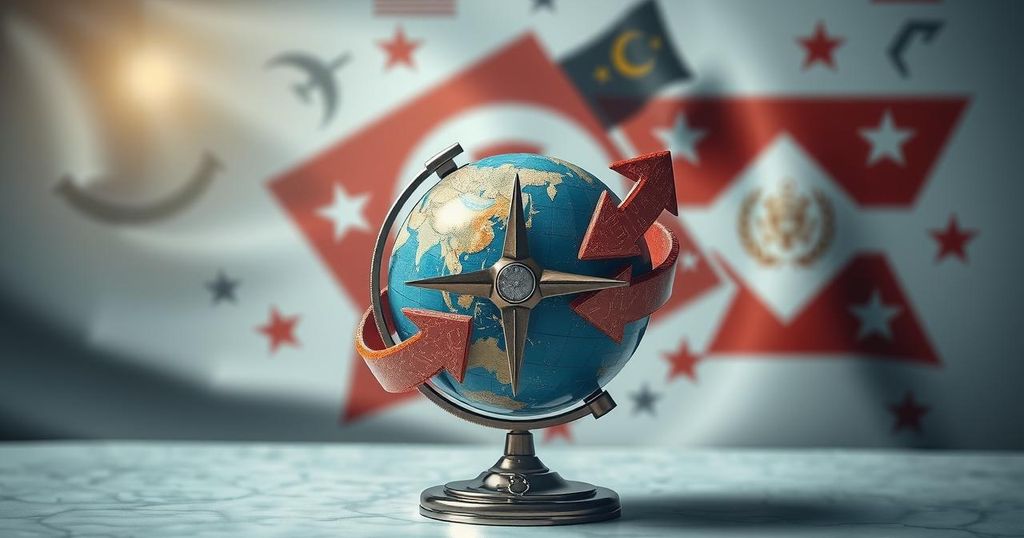President Trump’s Venezuela policy has transitioned from severe sanctions imposed during his first term to attempts at negotiation in his second term. Initial strategies failed to dislodge Maduro, leading to fluctuating policies influenced by internal administration dynamics. The unpredictable nature of Venezuela-U.S. relations continues to evolve as past administrations confront Maduro’s persistent regime.
President Donald Trump’s policy on Venezuela has been marked by rapid shifts and a lack of consistency, reflecting the unconventional nature of his administration. Initially, Trump pursued economic sanctions to weaken the regime of Nicolas Maduro in hopes of facilitating a transition of power. However, after failed attempts to support the opposition, including an embarrassing coup, Trump began to reconsider his stance, signaling an openness to negotiate with Maduro by 2020.
As Trump entered his second term, Venezuela policy remained tumultuous. In his early weeks, he sent special envoy Richard Grenell to engage with Maduro, resulting in the release of several Americans detained in Venezuela. Nevertheless, within a week, Trump retracted support for a proposed agreement due to perceived inaction from Maduro’s side, reflecting the administration’s unpredictable can bounce back.
The internal dynamics within the Trump administration further complicated its Venezuela approach. Figures like Senator Marco Rubio, known for their hardline stance, regained influence over softer voices like Grenell, leading to an escalation of tensions with Maduro’s regime. This illustrates the fluctuating power dynamics in U.S. foreign policy, especially concerning strategic nations like Venezuela.
Past experiences from the Biden administration underscore the complexity of dealing with Maduro. After attempting conciliatory measures that were met with renewed repression in Venezuela, the Biden administration reinstated sanctions. This historical context suggests that both administrations operated under the realization that Maduro’s entrenched power necessitates a pragmatic approach, even if tensions remain high.
Ultimately, Trump’s Venezuela policy reflects an administration willing to experiment with diplomatic engagement, followed by rapid reversals resulting from frustrations. Should Maduro honor agreements made, a potential shift in Trump’s strategy could emerge, demonstrating his capacity for adaptability. The complex interplay of U.S.-Venezuela relations will likely continue to evolve amid ongoing political changes.
In conclusion, President Trump’s approach to Venezuelan policy has oscillated between strict sanctions and attempts for diplomatic engagement. His initial hardline stance resulted in sanctions against Maduro’s regime, but subsequent reflections led to a willingness to negotiate. The dynamic nature of U.S.-Venezuela relations illustrates the challenges both administrations faced in managing a formidable leader like Maduro while seeking a resolution to the crisis. Thus, Trump’s unpredictable tactics highlight the complexities of international diplomacy.
Original Source: www.newsweek.com




